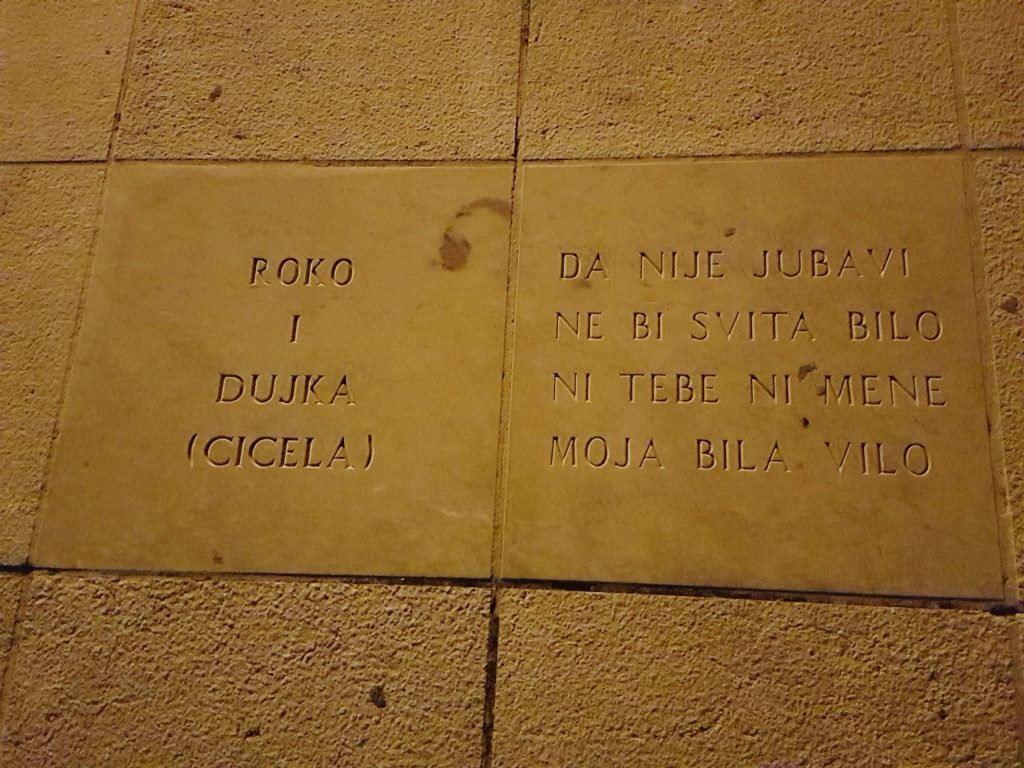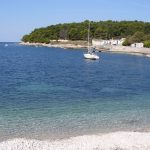As any Split fan will tell you, it doesn’t take much to be swept away by the city lying at the foot of Marjan Hill. And if you are of the romantic kind, there’s nothing like walking hand in hand with your significant other amid the swinging palm trees on the Split promenade, or Riva, as it is known to locals.
I often hear tourists ask for recommendations of ”hidden” gems and places known only to locals. The history of Roko Ljubica and Dujka Bašić is a perfect example of one such gem, although it has yet to be recognized as a tourist product. A shame, for they were living witnesses of the transformation of Split from a small port town into a modern city at the turn of the century.
What is more, their steps are easy to retrace. Although they left no physicial proof of their existence, the miniature marina where they spent most of their years together, the church where they got married, the streets they walked to buy tobacco and bread and sell fish that Roko would catch – still stand to this day.
Roko Ljubica married Dujka Bašić, a poor illiterate girl from Split’s neighbourhood Veli Varoš on February 16th, 1906. The people of Veli Varoš nicknamed her Cicela or Cicibela, meaning a street cat, because much like a street cat, she had no one to depend on but herself.
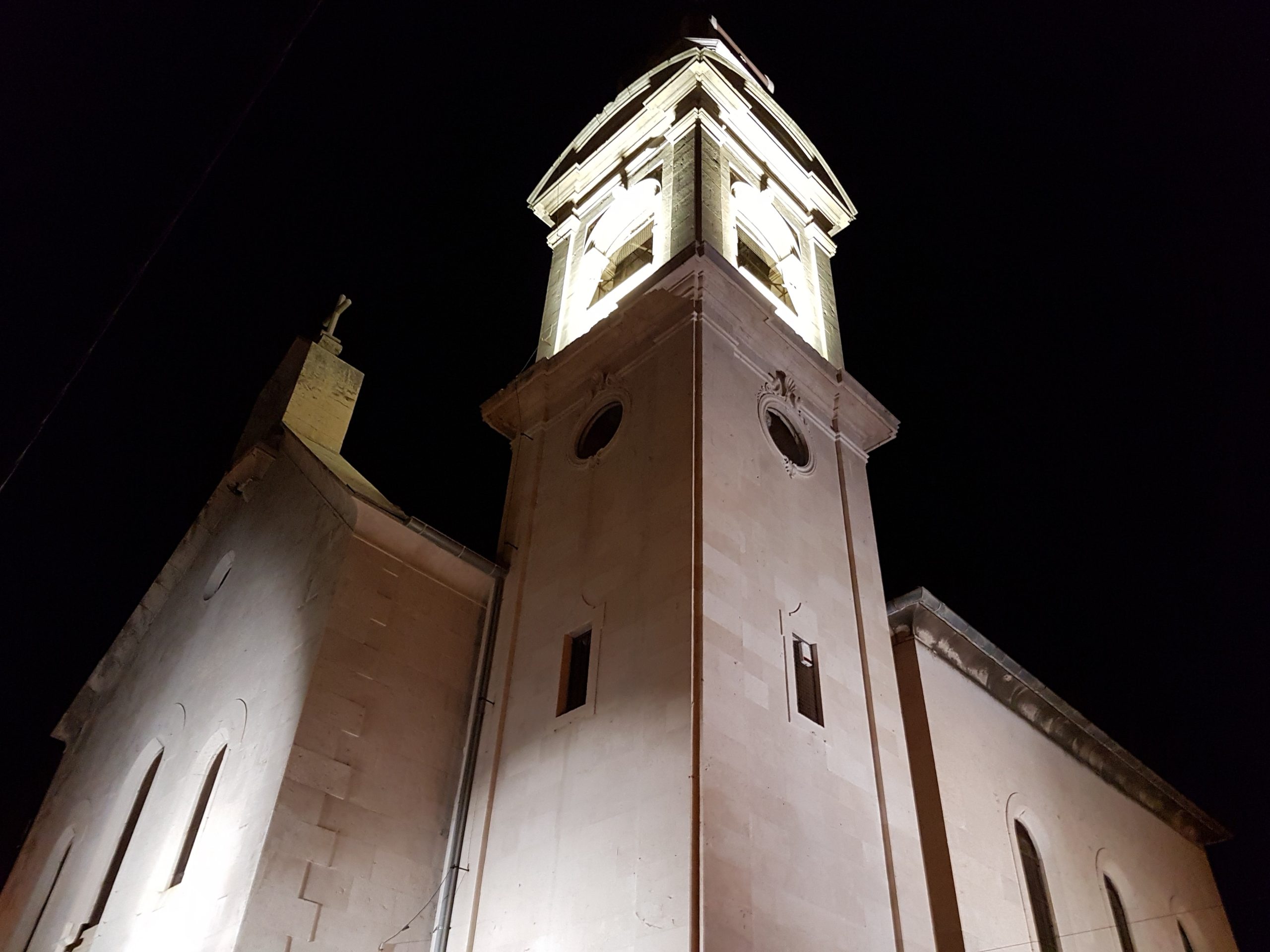
Saint Cross Church (Crkva svetog križa) where Roko and Dujka married in 1906.
As a fisherman, Roko was able to provide for the two of them, but his earnings didn’t offer enough to buy them or build them a home. Instead, they lived out their life in a miniature marina of Matejuška, in the Split’s port northwest corner, which for decades served as a shelter for fishermen’s boats. One such boat served as their home. Abandoned and full of holes, which Roko closed with cement, it was no longer fit for going to sea.
In 1906, what Roko and Cicibela could see from their boat in Matejuška, had they looked toward the promenade in the evening, were not twinkling lights and palm trees. There was nothing but darkness, and on clear and starry nights, the shapes of mulberry trees, which used to grow there. The first palm tree, a plant this city is unimaginable without now, wasn’t planted until 1921. Maybe it wouldn’t have been at all, as mulberries with their long and firm leaves and branches provide genuine shade. However, in Split of that time, mulberry fruit falling from the trees got trampled over by livestock and carriages which were passing through the port’s street every day from the direction of Veli Varoš and caused a foul smell in the summer heat.
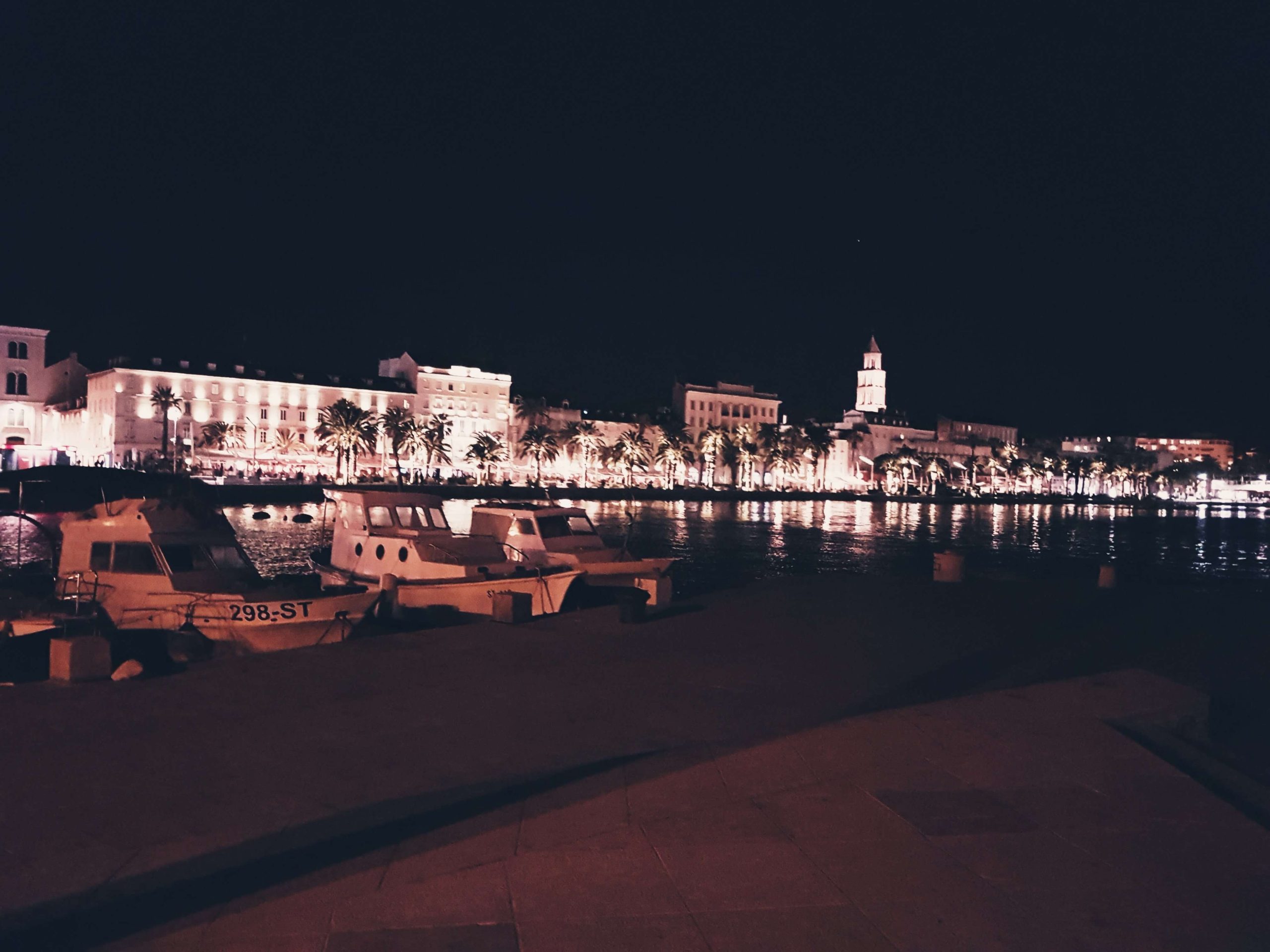
The view from Matejuška to Split’s Riva and the eastern part of harbour. The plaque dedicated to Roko and Dujka (Cicibela) can just be seen on the right-hand side as a single dark rectangle amid lighter ones.
Although their boat provided little cover from the elements, especially in the winter, Roko and Dujka continued to live there until the late 1930s – they even adopted a dog named Belina – when the city provided them with a room in an almshouse behind the Vestibul of the Diocletian’s Palace.
As posh as it sounds, living near the former imperial residence meant residing in a crowded, noisy, and dirty place, and Roko spoke about it with disdain at any given opportunity. It wasn’t a good place for his beloved Cicibela. Split’s annals mark that, in the end, the municipality gave in and gave them a small house in Antonova Street, near their former home of Matejuška. It was there that they lived out their last days in the winter of 1936. The exact location of their final resting place remains unknown.
At a first sight, the story of Roko Ljubica and Dujka Bašić is nothing special. In comparison to many other historical figures who walked the streets of Split – from the Roman emperor Diocletian onward, their lives are only a thread in the rich tapestry of Croatia’s most famous port city.
And yet, this story of ordinary people who owned little aside from the clothes on their back – continues to awake interest. Their life was also immortalized in several screens and stage pieces thanks to the legendary Split writer and journalist Miljenko Smoje and the song by Oliver Dragojevič Ča je život vengo fantažija (Life’s Nothing Other Than a Fantasy).
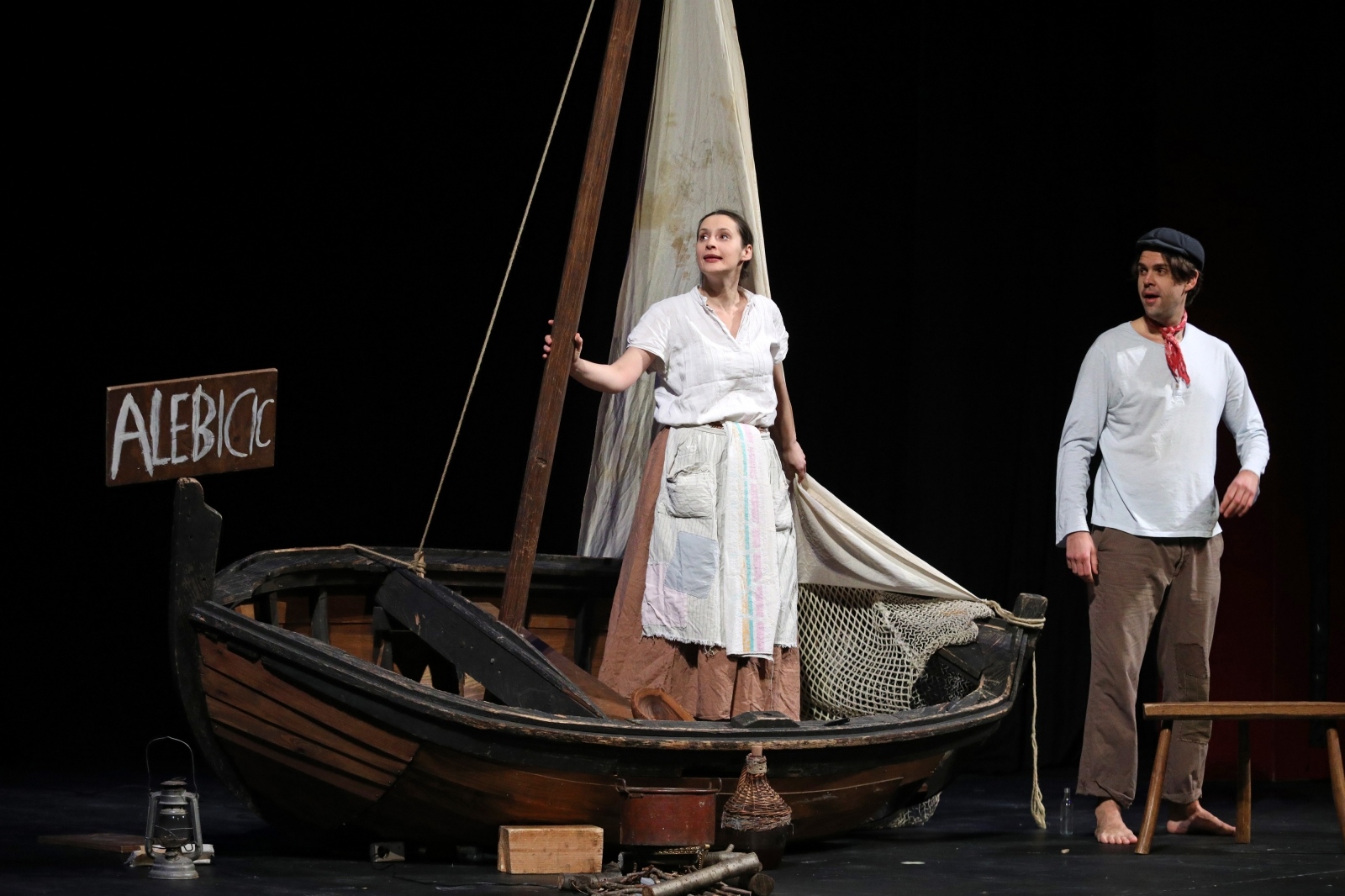
Ivan Baranović and Monika Vuco playing the title characters in an adaptation of Miljenko Smoje’s play Roko and Cicibela © Dusko Jaramaz/Pixsell
Maybe it’s the surprise, like the kind Splićani at the turn of the century must have felt at their unusual living arrangements, Roko’s contempt for the municipality’s failed attempts at charity, or them being content with what little they had. Their peculiar way of life certainly attracted the attention of travelers visiting Split between the two world wars. Thanks to them, we even know what Roko and Dujka looked like. Several years ago, Split photographer and artist Ana Perajica found probably the only photograph of the couple, taken more than 70 years ago.
To this day, the interest in their life remains as strong as ever. Whatever the reason for that may be, the story of Roko and Dujka, or Cicibela, reminds all of us living in the 21st century that happiness has little to do with material possessions and gives us a portrait of two people with an unbreakable spirit, which, many will tell you, is what Dalmatians are all about.
For more stories like this one, CLICK HERE to visit our sections dedicated to travel in Croatia.
For more on travel, CLICK HERE.

